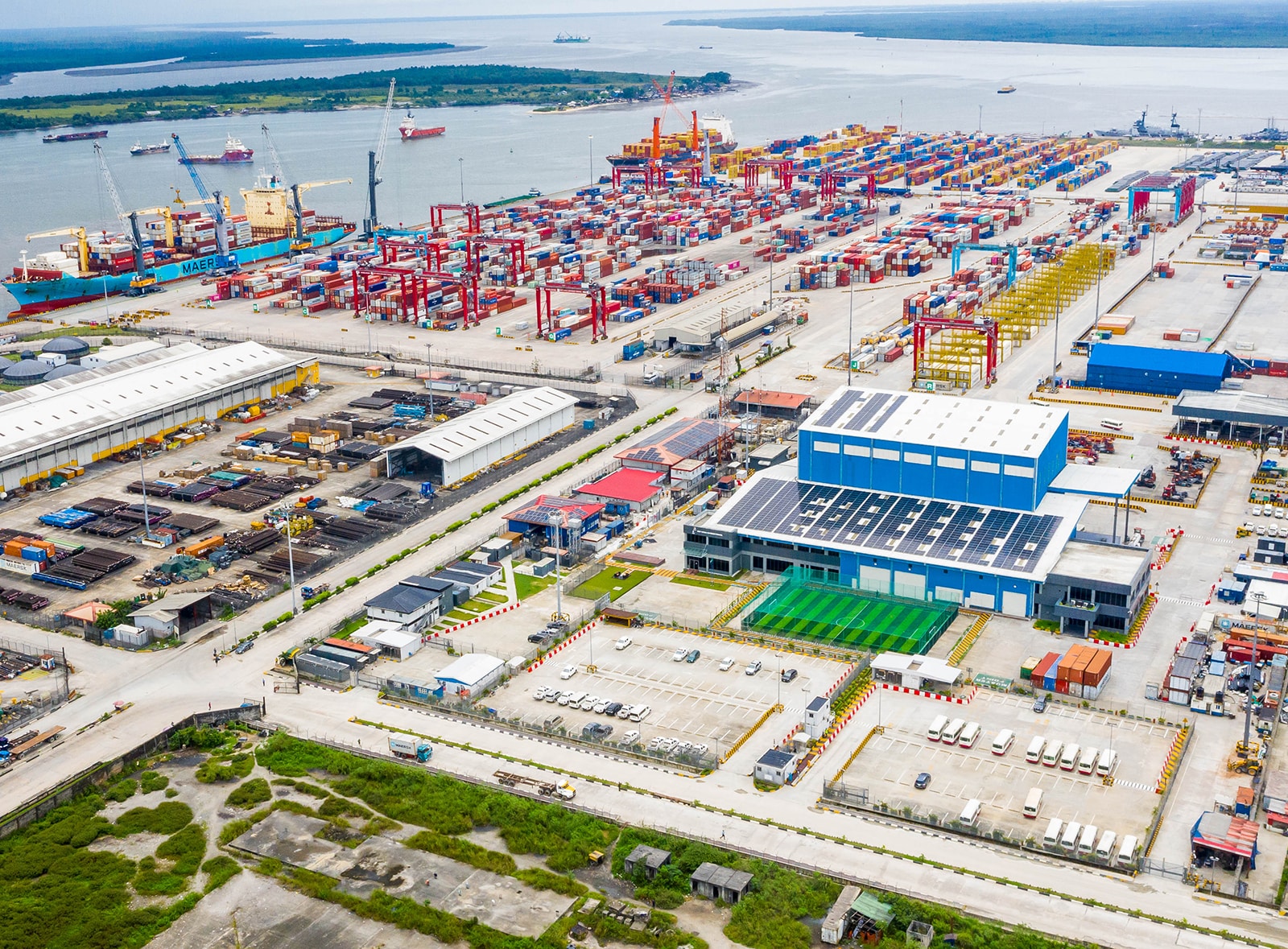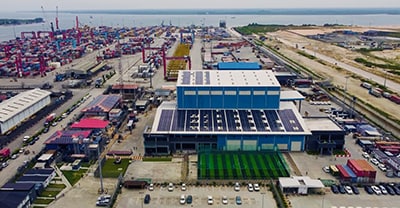
02/07/25
Nigeria can lead change on electrified container trade
Nigeria has a unique opportunity to electrify its containerised trade at scale – leapfrogging fossil-powered infrastructure and aligning with the global shift toward low-emission logistics. This is the central message of a new white paper by terminal operator APM Terminals and international systems change consultancy Systemiq presented at the Decarbonising Infrastructure in Nigeria Summit in Abuja.
The benefits of electrification are substantial: the transition can mobilise up to $830 million in investments by 2030, create higher-skilled local jobs, save 390 ktCO2e in greenhouse gas, reduce air pollution and improve public health, and strengthen power supply reliability.
Across the globe, ports and freight corridors are undergoing major electrification. More than 40 ports – from Jordan to Brazil and India - are rolling out electric container-handling equipment, investing in low-emission power infrastructure, and digitising logistics operations. On land, electric trucking corridors are gaining momentum in high-traffic regions, with successful pilots in Kenya, China and India demonstrating that freight electrification is now feasible and scalable in emerging markets.

To unlock its full potential, Nigeria must activate strong public-private collaboration to kick-start implementation of the roadmap, starting with short-term actions and building towards sustained progress over the next five to 10 years. The key focus areas – reliable, affordable power supply and equipment electrification – can be addressed in parallel.
“Our findings clearly show that the time to act is now,” says Eveline Speelman, Partner in Systemiq. “Electrification aligns with upcoming investment cycles and can drive progress on key national priorities. With nearly 60% of container terminal concessions approaching renewal, the moment is right to embed electrification into the next wave of logistics infrastructure investment.”
APM Terminals operates two container terminals in Nigeria – Apapa in Lagos and WACT in Onne – as well as a container depot in Kano. There is significant potential for investments in the containerised trade, aligned with the company’s commitment to public-private collaboration, says CEO of APM Terminals Nigeria, Frederik Klinke:
“Containerised trade is a vital backbone of economic development in Nigeria, and we view the country as a key growth market. We believe that electrification plays an integral part of bringing operations into the most advanced level globally. This white paper outlines a clear roadmap for how public-private partnerships can unlock electrified and decarbonised operations. From our global experience as a terminal operator, we know that beyond lowering emissions, electrification improves the working environment, reduces air and noise pollution, and delivers tangible benefits to neighbouring communities.”